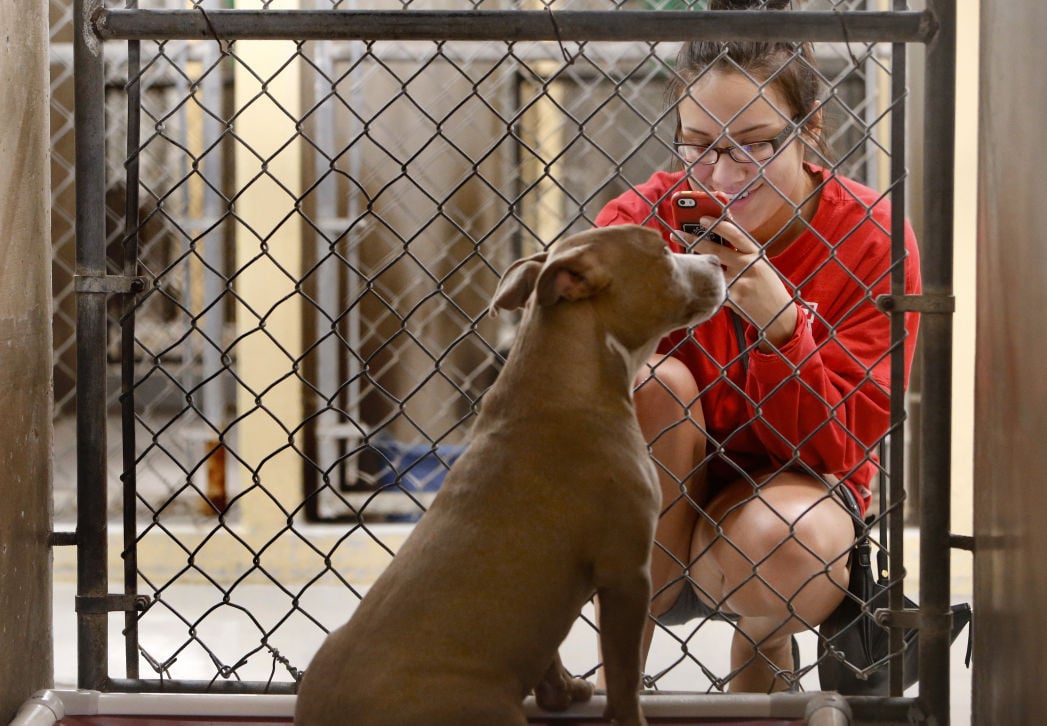Less than six months after voters agreed to spend $22 million on a new animal shelter, County Administrator Chuck Huckelberry says we may not have enough money to pick up homeless and injured dogs and cats to put in it.
Negotiations between the city and county on an annual contract for animal-care services have turned into a battle of threats and misinformation.
“I think that the collateral damage is to the dogs and cats and pets in this community,” said Jack Neuman, chairman of the Pima Animal Care Center Advisory Committee.
The two sides are in talks for a one-year extension on the city’s two-year contract, which expires at the end of June.
Between state budget cuts and the continued flagging economy, both governments are pinching pennies, turning lost pets and strays into bargaining chips.
Huckelberry said in an April 20 memo he is not willing to increase euthanizing unclaimed animals, which results in longer shelter stays. That leaves cutting back on responding to calls for service from within the city — if the city refuses to pay — as the likely way to save money.
Neuman said while many people may be unaware of the complexities of contract negotiations, “we just know the animals are paying the price.”
One major disagreement involves payments for administrative overhead costs at PACC.
About a year ago, the county began billing the city about $23,000 a month in administrative fees. The city has refused to pay those costs, and is now about $310,000 in arrears.
In a memo to Huckelberry, interim City Manager Martha Durkin said the city won’t pay the fees because they aren’t part of the contract. “The county has never charged this before,” she said in the memo.
Huckelberry said the county might waive the fees if the city in turn waives administration fees charged to the county for sewer bills. But that’s not a fair trade, Durkin said in a memo.
The county also billed the city for $245,000 for part of the construction of a large, air-conditioned tent to expand capacity for animals at the shelter to further PACC’s goal of euthanizing fewer animals that could be adopted as pets.
Huckelberry said he assumed the city was on board with that model — but the city hasn’t paid that bill, either.
“This lack of reimbursement will have a direct impact on animal care services,” Huckelberry told Durkin in a memo.
Holding more animals for longer periods at the shelter costs more, and if the city can’t pay more, Huckelberry said, one solution could be to hold the line on shelter spending, but cut back on enforcement.
That means answering fewer calls for service from within city limits to keep costs under control.
The city offered to let the county use a 1-acre lot next to the construction site for the new voter-approved shelter, which would save the county money by allowing the project to be built more quickly. But the city wants a discount on its bill for the tent in exchange, and Huckelberry said that’s not a fair trade.
About 55 percent of animals that come through PACC’s doors are from the city, Neuman said. And volunteers and staff don’t decide which animals to help based on geography — they help them all, he said.
“The community wants these animals taken care of,” Neuman said.
The city has an obligation to pay its share of animal-control costs, but only those costs that were spelled out in the contract, said City Councilmember Steve Kozachik. The county should work with the city to renegotiate the contract if it wants the city to pay administrative fees, but it shouldn’t just send surprise bills, he said.
That has thrown a wrench into the works of the contract negotiations, he said.
Huckelberry insists the city agreed to pay its share of the costs, and the county is billing appropriately.
The city has budgeted $3.7 million a year for animal-control services and doesn’t plan to spend more next year, said city budget director Joyce Garland. The city’s bill is about $348,000 a month, including the administrative fees — nearly $4.2 million, she said.
Neither city officials nor county officials could say what the dollar difference is between what the county is asking for and what the city is willing to pay.
“It is my understanding that we are all working to identify an affordable and humane business plan for PACC so we can budget appropriately,” Durkin told Huckelberry in a memo.
Everyone is faced with budget challenges right now, so the issue is trying to decide what can and can’t be paid for and how to work it out, but “dialogue is very much open,” said PACC chief of operations Kristin Barney.
Ideas the city has placed on the table include a marketing campaign to encourage more people to license their pets, which is expected to bring an extra $100,000 in licensing-fee revenue next fiscal year, Garland said. The city would make it easier for people to pay licensing fees by accepting vaccination documents and payments at more locations, she said.
Licensing fees bring about $1 million a year to the city’s general fund, and the city spends that money on its contract with the county, she said.
Along the same lines, the county would like to increase licensing fees by $1 each year for five years, and the city could increase its fees to match, which Durkin supports. That could bring in an extra $50,000 in fee revenue for the city, Garland said.





